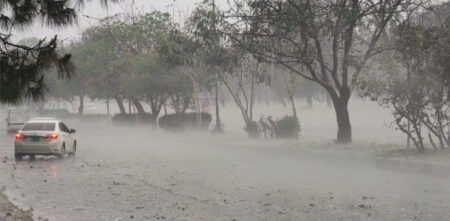ISLAMABAD, JULY19: A large portion of Pakistan’s cropland was ravaged by historic floods in 2022, causing farmers to suffer significant financial losses. Since commercial insurance is incompatible with Islamic beliefs, farmers have shunned it. Conventional insurance contracts frequently include interest, which is forbidden in Islam to stop the practice of exploitation.
Here’s takaful insurance, an Islamic financial instrument that’s becoming popular among farmers (source: Bloomberg). Through contributions to a pool that balances each other’s losses, members in takaful operate on a mutual cooperation basis. After expenditures and service fees, participants may receive a refund of any surplus. This concept is in line with Islamic beliefs and provides a viable way out for farmers who are at risk from climate change.Maintaining security and resolving problems
According to Bloomberg, Umair Ismail Ghaya, the former executive director of Salaam Takaful, the floods of 2022 increased public awareness of takaful insurance, which Pakistan intends to implement by the end of the next year in one-third of its financial sector.
In order to test takaful initiatives, Salaam Takaful has teamed up with significant agricultural businesses including Syngenta and National Foods Ltd., as well as InFarmer, a satellite data supplier, and JazzCash, a mobile payment service. These collaborations tackle a significant issue: 79% of Pakistanis lack bank accounts. Farmers can pay premiums and get rewards with JazzCash without using traditional banking.
Salaam Takaful’s products include parametric insurance, which makes payments based on the fulfillment of predetermined weather conditions like temperature or precipitation levels. With this approach, payouts can be made quickly without the need for drawn-out loss analyses. For example, if a predefined criterion is met, a farmer who contributes $5 per acre annually may receive $18 per acre.
To prevent a single incident impacting everyone, policyholders must be widely distributed for parametric insurance to be successful. In Pakistan, one of the most climate-vulnerable nations in the world, this is difficult. Additionally, Pakistan lacks in insurance penetration, standing at 1%, despite the possibility of takaful insurance. Over the past 20 years, climate calamities have resulted in uninsured losses totaling 10% of GDP. Thirty billion dollars were lost in the 2022 floods alone, with very little coverage.
According to InFarmer founder Naveed Alam, the future of takaful insurance in Pakistan depends on promotion and subsidization. Muhammad Ali Khan emphasized the need of financing systems that are in line with local values in a study he wrote on takaful for the Islamic Development Bank and UNDP.Salaam Takaful personnel sparked curiosity and questions among farmers at an outreach event in Toba Tek Singh by describing to them how weather conditions affect automatic payouts. Maha Qasim, the founder of Zero-point Partners, stated that many farmers would rather borrow money from reputable sources than deal with the hassles of insurance.
In a country where agriculture is the backbone of the economy, takaful insurance may provide Pakistani farmers with a culturally relevant safety net as long as climate difficulties persist, filling the insurance gap. What thoughts do you have regarding this narrative? Tell us in the comments section below.
